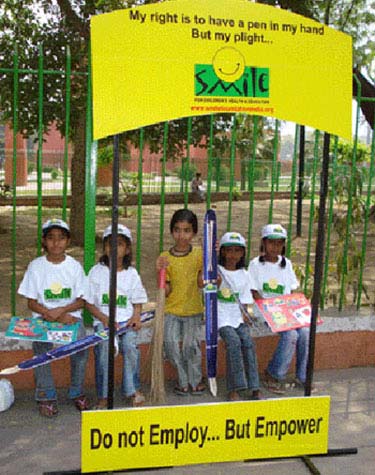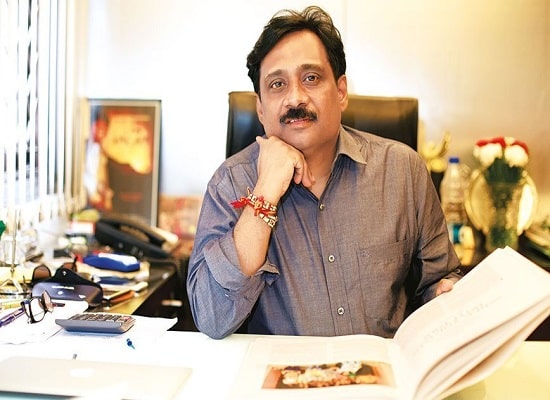They are abandoned. They do not get a chance to step in a school. They are left to fend for themselves on the streets. They suffer from many forms of violence. They do not have access to even primary healthcare. They are subjected to cruel and inhumane treatments every day. They are children – innocent, young and beautiful – who are deprived of their rights.
In the history of human rights, the rights of children are the most ratified. The United Nations Convention on the Rights of the Child (UNCRC) defines Child Rights as the minimum entitlements and freedoms that should be afforded to every citizen below the age of 18 regardless of race, national origin, colour, gender, language, religion, opinions, origin, wealth, birth status, disability, or other characteristics.
These rights encompass freedom of children and their civil rights, family environment, necessary healthcare and welfare, education, leisure and cultural activities and special protection measures. The UNCRC outlines the fundamental human rights that should be afforded to children in four broad classifications that suitably cover all civil, political, social, economic and cultural rights of every child:
Right to Survival:
• Right to be born
• Right to minimum standards of food, shelter and clothing
• Right to live with dignity
• Right to health care, to safe drinking water, nutritious food, a clean and safe environment, and information to help them stay healthy
Right to Protection:
• Right to be protected from all sorts of violence
• Right to be protected from neglect
• Right to be protected from physical and sexual abuse
• Right to be protected from dangerous drugs
Right to Participation:
• Right to freedom of opinion
• Right to freedom of expression
• Right to freedom of association
• Right to information
• Right to participate in any decision making that involves him/her directly or indirectly
Right to Development:
• Right to education
• Right to learn
• Right to relax and play
• Right to all forms of development – emotional, mental and physical
Impact of the Convention of the Child Rights
A milestone in the international human rights legislation, the ‘Convention on the Rights of the Child’ has been instrumental in putting all the issues pertaining to children issues on the global as well as national agenda. In addition to this, it has extensively mobilized actions for the realization of the rights and development of children worldwide.
It was not an overnight initiative that resulted in the adoption of the Child Rights. It took several years of movements and activism on shaping favourable, positive and constructive attitudes toward children, and also inciting actions to improve their well-being. The enormous efforts involved toward the implementation of the Convention, the significant amount of resources committed to this cause, and the overall effectiveness of the systems put in place for the execution process have a bearing on the success of child well-being outcomes.
Over the last 20 or so years, implementation of the Convention and its effect on child well-being varied from country to country and from one region of the world to the other. Based on analysis, there has been outstanding progress at a global level in addressing the issues related to children. These include progress in access to services, reaching their fullest potential through education, enactment of laws that upholds the principle of the best interests of child, and child survival.
Though a noteworthy progress has been achieved, yet in developing countries, particularly India, there is still a long way to go in realising the rights of children. Though all the relevant rules and policies are in place, there is a lack in enforcement initiatives. As barriers, there are several factors that forbid effective implementation of the laws. Due to relatively low success in achieving concrete child development outcomes in India, the condition of underprivileged kids and underprivileged youth is harsh and needs urgent attention. There is a need to intensify efforts for children welfare at all levels to implement the rules and provisions of the Convention and contribute to create a world suitable for children.

Child Rights and the world
People from across the world striving for social justice have often directed their efforts toward the most vulnerable in society—the children. From Princess Diana’s charitable work on behalf of children to the efforts of activists like Grace Abbott and the youngest Nobel laureate in history—Ms. Malala Yousafzai, these famous children’s right activists have put commendable efforts in helping improve the lives of the youngest citizens.
2014 Nobel Peace Prize awardees—Ms. Malala Yousafzai and Mr. Kailash Satyarthi have reminded us all of the need to keep on advancing in providing opportunities that has an important effect on all children. The opportunities are meant to be meaningful enough to allow them to learn and gain the mindsets and skills that would empower them to be free, develop themselves, their communities and the world.
Mr. Kailash Satyarthi’s struggle to liberate children from child labour had cost him many life threats, including bullet wounds by those who exploit young boys and girls for economic gain. Wearing flak jackets, and armed with strong determination, he and his team raided many illegal factories and mines to rescue the children who are sold into servitude. It has been 30 years now since he started his movement. A movement that has one clear purpose—no child shall be a slave.
On the other hand, when one thinks of Ms. Malala Yousafzai, the first thing that pops in one’s mind is education. The second is—education for girls. In 2009, when she was just 11, she wrote to BBC about the norm of banning female education under the Taliban regime in the Swat Valley (her hometown). Her article gained tremendous momentum worldwide. She started her fight for the education of girls at that small age and began to speak publicly and to the press, which caused her and her family receive constant death threats.
“I strongly feel that this is a big honour to hundreds of millions of the children who have been deprived of their childhood and freedom and education.” – Mr. Kailash Satyarthi.
“I speak not for myself but for those without voice… those who have fought for their rights… their right to live in peace, their right to be treated with dignity, their right to equality of opportunity, their right to be educated.” – Ms. Malala Yousafzai.

The Right to Education
The father of modern education—John Amos Comenius proposed – “all persons should be educated, so we could have peace in the world”. Visionaries of the world understood that peace meant guaranteeing every person certain rights that are conditional for humanity—education being one of the most important.
The addition of the Right to Education (RTE) in the Universal Declaration of Human Rights in 1948 was the beginning of a remarkable expansion of educational opportunities around the world. The parliament of India enacted the Right of Children to Free and Compulsory Education Act or Right to Education Act (RTE) on August 2009. The same got enforced on April 1st 2010.
As per the act, education is a fundamental right of every child who is between 6 and 14 years old. The act also states that until the completion of elementary education, no child shall be held back, expelled or required to pass a board examination. There is also a provision for special training of school drop-outs to bring them up to par with students of the same age.
As a charity for child rights, Smile Foundation has been providing education to marginalized children in poor rural and urban communities in 25 states of the country. Its flagship programme – Mission Education exemplifies the global struggle for universal education. The programme has succeeded in bringing more than 200,000 children to school since its start in the year 2002.
Underprivileged kids lag at all stages of education. When earning a livelihood and taking care of the members of the family becomes a primary matter of concern in one’s life, education stands a little or, very often, no chance of pursuance. For the millions of underprivileged people in India, education is a high-priced luxury, and this negative outlook continues on with every new generation. Poverty damages childhood with significant effects on a child’s physical and mental health, as well as educational achievement. It limits the expectations of the child’s ability to perform well in school, constantly reminding him/her of the miniscule chance he/she has to overcome adversity and poverty.
With its development interventions that are focused on social welfare of children, Smile Foundation has raised those expectations among the hardest-to-reach children. Recent mark-sheets of the students in all ME centres has shown Smile Foundation primary school students outperforming their peers, with a very high passing rate. Last year, 51% of the total beneficiaries in Mission Education centres across India were girls. Also, 87% of the total eligible students are successfully mainstreamed in private and government schools.
Smile Foundation is a children charity that has been working for children welfare since its inception.